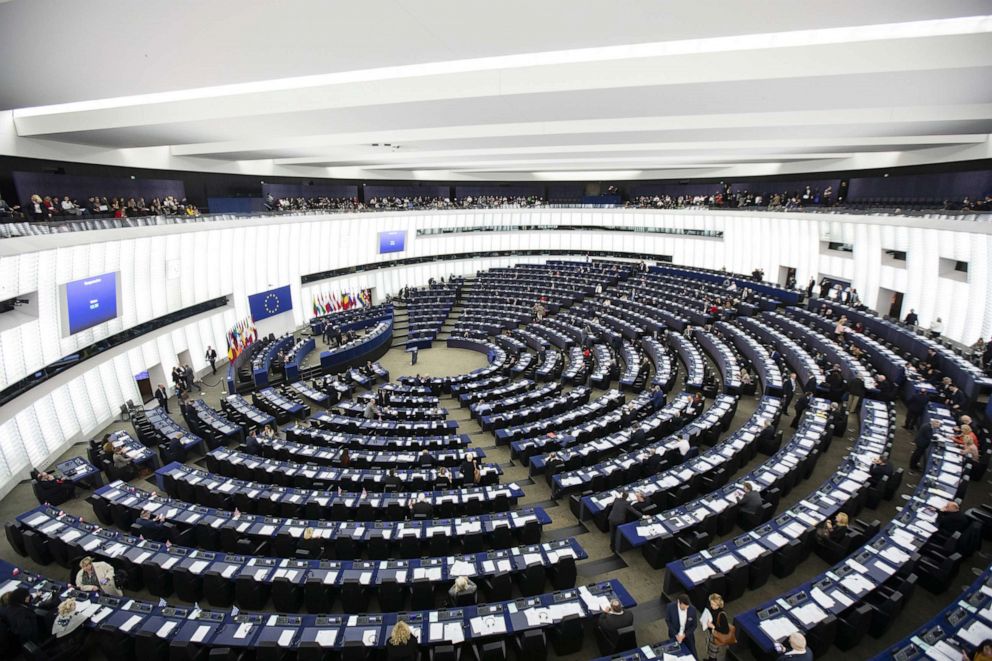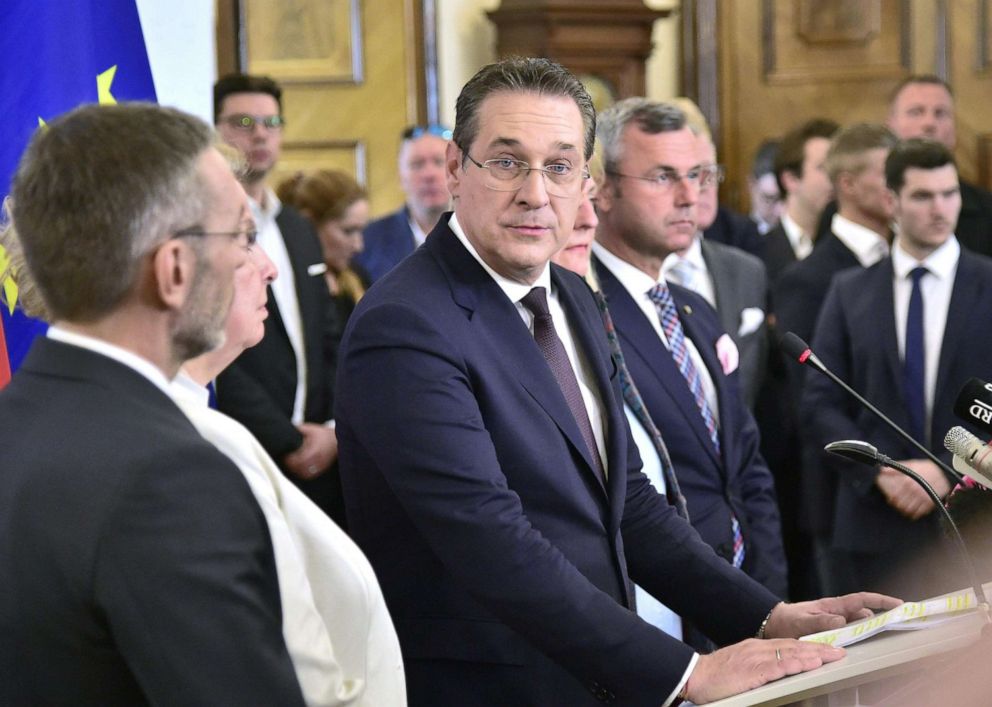Europe watches as far-right nationalist parties seek center stage in EU parliament elections
Nationalist parties are set to win big in European Union elections in Europe.
BERLIN, PARIS -- Supporters and leaders of Europe’s far-right parties gathered for Italian Interior Minister Matteo Salvini’s international alliance of European Nationalist parties last Saturday, hoping to unite Europe’s top nationalist parties and their voters in advance of the upcoming European Parliament elections.
Marine le Pen of the National Rally (formerly known as National Front) was in attendance, as was Germany’s Jörg Meuthen, leader of the German far-right party Alternative for Deutschland (AfD). Yet Europe's populist party -- Austria’s Freedom Party -- was notably missing.
One day earlier, a video obtained by Germany’s Der Spiegel revealed the far-right party’s leader Hans Christian-Strache offering government contracts to a woman posing as a Russian investor during a booze-filled evening on the Spanish party island of Ibiza. The response was swift, with Austrian Chancellor Sebastian Kurz ousting the anti-immigration party from the country’s ruling coalition and calling for snap elections just days before the FPO hoped to have a strong showing in EU elections.
Meanwhile, in Italy, tensions have been mounting between Italy’s governing coalition made up of Salvini’s far-right League and the left-wing Five Star Movement, fueling speculation that a government reshuffle will soon be in the cards.
If far-right parties can’t get along with their coalition partners, the likelihood that they will unify in the European parliament hardly seems promising.
Yet such internal upheavals may not have much of an effect on nationalist party voters who in recent years have been lured away from establishment parties and toward Euroscepticism and limits on immigration, particularly since the bloc saw an influx of migrants from the Middle East in 2015. According to the latest poll by the European Council on Foreign Relations, anti-European parties could become the second-largest group in the parliament, holding up to 35% of seats.
England’s Brexit party, headed by Nigel Farage, is expected to win 34% of U.K. votes, according to the latest Europe Elects’ poll, despite lacking a substantial political program outside of pushing for Brexit by any means necessary. Poised to take a substantial lead over traditional parties such as the Liberal Democrats and Teresa May’s conservatives, the Brexit party’s strong position can be explained by “the crumbling of traditional party loyalties, especially for the long-established Conservative party that has dominated the political scene for 150 years,” Tony Travers, professor of public policy at the London School of Economics, told ABC News.

The European Union Parliament is responsible for passing EU laws, establishing EU budgets and examining EU institutions. Members of parliament are elected to five-year terms.
MPs join blocks based on their political affiliation, not the country that they hail from. Currently center-left and center-right blocks have formed a majority coalition. Although only the European Union Commission can propose laws, the parliament is responsible for changing or amending them, which means a strong showing of Eurosceptic politicians could theoretically slow down lawmaking.
If elected, some MPs aim to take powers away from the European Commission and put them back into the hands of the parliament.
“It is Macron’s Europe. We want the power to be given back to the people, to the European legislators, i.e. the European Parliament,” Marie Dauchy, one of National Rally Party's 79 candidates, told ABC News.
To appeal to voters, the nationalist party is now pushing for a reform of EU institutions instead of leaving the union altogether.

Yet, as Austria’s political scandal shows, far-right parties currently in power around Europe stand on shaky ground. Populism is “volatile and prone to instability,” said Marcus How, head of research and analysis at Vienna-based political consultancy ViennEast.
“The 2014 EU election was also touted as a populist wave but it didn’t really add up to very much, not least because many of the far-right parties were simply unable to form alliances with one another,” he said.
Despite the wins, their legislative power in parliament would be limited, meaning their influence is likely to be more “symbolic” than practical, How noted.
The real danger comes when center-right parties band together with their far-right counterparts to form coalitions. How cited the Austrian national elections in 2017 which brought a far-right party to the helm of the country.
“If the center right needs to court the populists and move away from the liberal consensus that's always been a worrying indicator,” he said.




